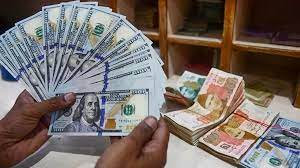F.P. Report
LAHORE: The Ferozepur Road Industrial Association (FRIA) has said that the newly-elected government will have to put in place a long-term financing plan to meet its very large external debt obligations for the next few years, as a timely announcement of the results, leading to a smooth formation of a new government will reduce policy and political uncertainty.
The FRIA senior vice chairman and PIAF EC member Shahbaz Aslam said that this is crucial for the country that is facing very challenging macroeconomic conditions, with fragile balance of payments, weak growth and high inflation. He said that political stability is essential for economic stability.
The business community is anxious to improve the economic situation, however, the caretaker government deserves congratulations for holding free and impartial elections. Shahbaz Aslam said that the government will need to negotiate for another International Monetary Fund program, after the current one expires in April 2024. Until a new program is agreed to, Pakistan’s ability to secure loans from other bilateral and multilateral partners will be severely constrained.
Even under a new IMF program, the new government will be tested on its willingness and ability to implement and sustain reforms, particularly revenue-raising measures, that may be politically unpopular, but required to improve macroeconomic conditions, he added. He said that Pakistan’s sovereign dollar bonds extended losses to more than 5 cents, data showed on Friday, as both Imran Khan and Nawaz Sharif claimed victory in neck-and-neck results from Thursday’s elections in the debt-laden nation.
All of its sovereign dollar bonds slid, with the September 2025 maturity falling the most, shedding just over 5 cents to trade at 82.4 cents on the dollar. The FRIA SVC said that possibility of a political stalemate in Pakistan leading to delays in both reforms and crucial foreign funding has sparked a selloff in its international bonds and fuelled analysts’ fears of further economic misery for the country. Pakistan is in an economic crisis, with dwindling foreign currency reserves that will be further strained by a $1 billion bond payment due in two months, while its $3 billion funding program with the International Monetary Fund expires on April 12.
Pakistan will be entering into more severe political and economic instability if no party emerges with a simple majority, he said and added that most important is credibility of elections and legitimacy of the government – any government which lacks credibility will not be able deliver on much needed reforms.
Securing funding will be a top priority, with the country having not yet fully covered its external financing requirements for 2024 and its near $100 billion external debt burden casting a long shadow over the A new government is expected to quickly take the necessary steps for example on governance of state-owned enterprises to complete the last remaining review of the current $3 billion IMF Standby Arrangement – a bridge loan that helped pull the country back from the brink of default. Doing so would secure it a final $1.1 billion tranche before the current IMF program expires in mid-April – with the government then having to secure a follow-up program straightaway. We expect one of the most immediate policy initiatives taken by the new government will be to negotiate a new IMF Extended Fund Facility program, which typically runs for about 3-4 years, he said.
While the country’s international bonds make up just 3.4% of its total public debt – dwarfed by the near 13% it owes to China, external debt amortisation is high in percent of FX reserves, according to calculations. China is a major creditor for Pakistan and has in recent times rolled over loans to the country, as have the United Arab Emirates and Saudi Arabia. Political fragmentation might make it harder to push through painful and unpopular but necessary measures such as widening the tax base, analysts said.







